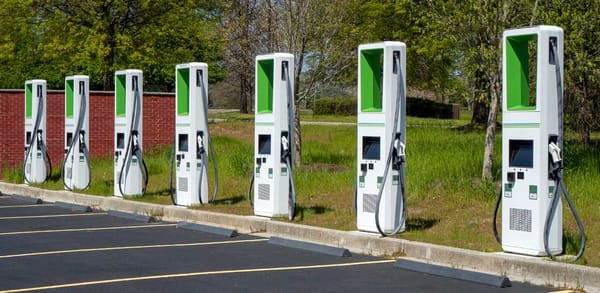Understanding the Importance of Evaluating Battery Health Before Buying an Electric Vehicle.
Kenya through KEBS (Kenya Bureau of Standards) has banned the importation of secondhand electric vehicles with not less than 80% battery life.


As the world transitions towards sustainable energy solutions, electric vehicles (EVs) have emerged as a promising alternative to traditional combustion engine vehicles.
Kenya through KEBS (Kenya Bureau of Standards) has banned the importation of secondhand electric vehicles with not less than 80% battery life.
Central to the performance and longevity of an electric vehicle is its battery health. Before investing in an EV, it's crucial to assess the condition of the battery to ensure optimal performance and longevity.
Read: What is the newest battery technology?
Let's delve into the significance of evaluating battery health and the factors to consider before purchasing an electric vehicle.
Why Battery Health Matters:
The battery serves as the heart of an electric vehicle, providing the energy required for propulsion.
The health of the battery directly impacts the vehicle's range, charging time, and overall performance.
Over time, batteries degrade due to various factors such as temperature fluctuations, charging habits, and usage patterns.
Assessing battery health before purchase helps in understanding its remaining capacity and potential lifespan, thus avoiding unexpected issues and ensuring a satisfying ownership experience.
See: How Electric Car Batteries Work
Factors to Consider:
- Battery Age: The age of the battery is a crucial factor in determining its health. Lithium-ion batteries, commonly used in EVs, degrade over time regardless of usage. Therefore, even a low-mileage EV with an older battery may experience reduced range and performance compared to a newer one.
- State of Health (SoH): SoH indicates the battery's current capacity relative to its original capacity. A battery with a high SoH retains more energy, providing better range and performance. SoH can be determined through diagnostics tools or by consulting with a qualified technician.
- Charging History: The charging habits of the previous owner significantly influence battery health. Frequent fast charging and deep discharges can accelerate degradation. Understanding the charging history, including the type of charger used and charging frequency, provides valuable insights into the battery's condition.
- Temperature Exposure: Extreme hot and cold temperatures can degrade battery health over time. EVs exposed to prolonged periods of high temperatures may experience faster degradation. Conversely, EVs stored in extremely cold conditions may suffer from reduced performance during winter months. Evaluating the vehicle's operating environment helps gauge potential temperature-related impacts on the battery.
- Maintenance Records: Reviewing maintenance records, including any battery-related servicing or replacements, offers transparency regarding the vehicle's history and helps assess the overall care taken by the previous owner.
Read: Are electric vehicles batteries all the same?
Electric vehicle (EV) batteries degrade over time due to various factors, including:
- Chemical Degradation: The chemistry of lithium-ion batteries, commonly used in EVs, inherently undergoes degradation with each charge-discharge cycle. Over time, the chemical reactions within the battery cells result in the loss of active materials and a reduction in the battery's capacity to store energy.
- Temperature Extremes: Exposure to extreme hot and cold temperatures can accelerate battery degradation. High temperatures accelerate chemical reactions within the battery, leading to faster degradation. Conversely, cold temperatures can increase internal resistance and reduce battery performance, particularly during charging and discharging cycles.
- Charging Habits: Fast charging and deep discharging can impact battery health negatively. While modern EV batteries are designed to withstand fast charging, frequent rapid charging sessions can lead to increased heat generation and accelerated degradation over time. Similarly, deep discharges, where the battery is drained to very low levels of charge, can stress the battery cells and contribute to degradation.
- State of Charge: Keeping the battery at high or low states of charge for extended periods can degrade battery health. Storing the battery at a high state of charge for prolonged periods can cause stress on the battery chemistry, leading to capacity loss. Conversely, allowing the battery to remain at a low state of charge for extended periods can promote the formation of undesirable compounds within the battery cells, further contributing to degradation.
- Cycle Aging: Each charge-discharge cycle contributes to a small amount of degradation in the battery. As the battery undergoes numerous cycles over its lifetime, cumulative cycle aging occurs, gradually reducing the battery's capacity and overall performance.
- Age: Regardless of usage, lithium-ion batteries degrade over time. This aging process is influenced by factors such as calendar age, storage conditions, and usage patterns. As the battery ages, its internal resistance increases, reducing energy efficiency and overall performance.
- Manufacturing Variations: Variations in manufacturing processes can lead to differences in battery performance and longevity. Factors such as cell quality, electrode composition, and assembly techniques can impact EV batteries' durability and degradation rate.
Related: How to maintain EV battery
Overall, a combination of these factors contributes to the gradual degradation of electric vehicle batteries over time.
Manufacturers employ various strategies, such as battery management systems and thermal management systems, to mitigate degradation and prolong battery life.
Additionally, adopting best practices in charging and usage habits can help minimize degradation and optimize the longevity of EV batteries.
See: Emerging technologies in Electric Vehicle batteries.
Importance of Professional Inspection:
While some information about battery health can be obtained from the vehicle's history and diagnostic tools, a professional inspection by a certified technician is indispensable.
Specialized equipment and expertise are required to conduct comprehensive assessments, including battery capacity tests, thermal imaging, and diagnostic scans.
Read: The future of EV batteries and technology.
Investing in a professional inspection provides peace of mind and ensures that potential issues are identified early on.
Conclusion:
In the era of electric mobility, the health of the battery is paramount when purchasing an electric vehicle.
Read: Different electric car battery technology.
By considering factors such as battery age, state of health, charging history, temperature exposure, and maintenance records, prospective buyers can make informed decisions and avoid unexpected complications.
Additionally, seeking a professional inspection before finalizing the purchase helps mitigate risks and ensures a satisfying ownership experience.
Prioritizing battery health not only enhances the performance and longevity of the electric vehicle but also contributes to a more sustainable and environmentally friendly transportation ecosystem.




